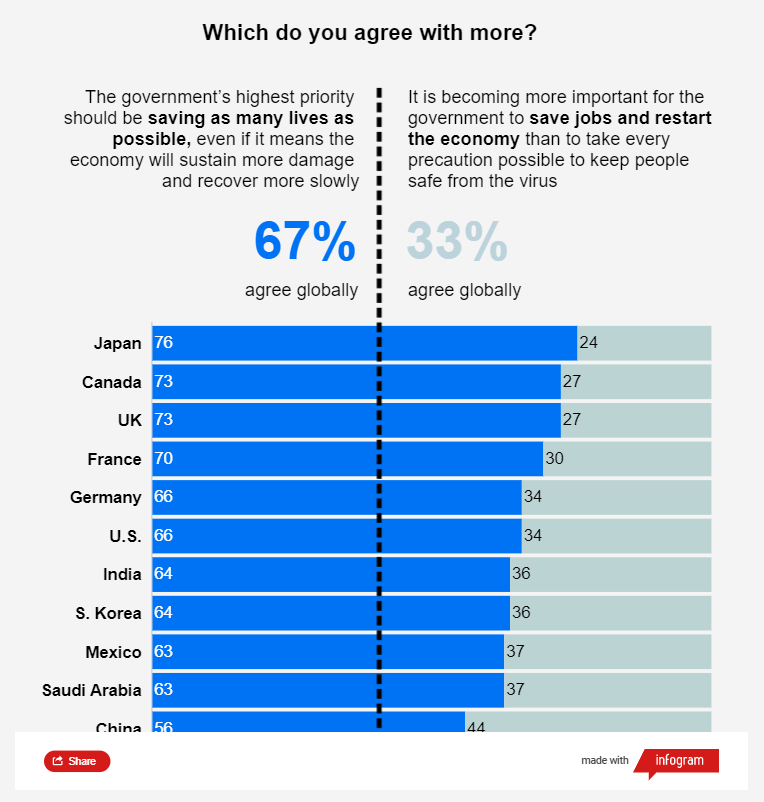
There have been many recent HE reviews in the UK considering academic freedom & freedom of expression (free speech).
While occasionally some academics do feel unable to express themselves, Libertarians opportunistically exploit any situation & pour petrol on a faux culture war.
While occasionally some academics do feel unable to express themselves, Libertarians opportunistically exploit any situation & pour petrol on a faux culture war.
A major inquiry was conducted in 1996-97 by the National Committee of Inquiry into HE.
The Committee referred to three essential principles relating to institutional autonomy, academic freedom and institutional governance:
The Committee referred to three essential principles relating to institutional autonomy, academic freedom and institutional governance:
• institutional autonomy should be respected. While Govt set the policy framework for HE nationally, the strategic direction & management of individual institutions should be vested wholly in the governance & management structure of autonomous universities & colleges;
• academic freedom within the law should be respected. By this we mean the respect for the disinterested pursuit of knowledge wherever it leads. This too is axiomatic, but needs to be managed responsibly by individual academics and institutions;
• institutional governance should be conducted openly and should be responsive to constituencies internal and external to the institution
2011 — The Grant Report
In 2011, a Working Group chaired by Professor
Malcolm Grant of UCL, on the topic of ‘Freedom of speech on campus.
2011 — The Grant Report
In 2011, a Working Group chaired by Professor
Malcolm Grant of UCL, on the topic of ‘Freedom of speech on campus.
Summing up, he said: Universities need to go beyond the minimum prescribed by law to ensure openness & transparency in their internal relations, that meetings of student societies are open to all & that views expressed at them are open to challenge.
This is to engage, & not to marginalise, different cultures. Universities need also to ensure that potentially aberrant behaviour is challenged & communicated to the police where appropriate.
But it is NOT their function to impede the exercise of fundamental freedoms, in particular freedom of speech, through additional censorship, surveillance or invasion of privacy.
The Working Group suggested 'academic freedom' in the UK is associated with a number of values:
The Working Group suggested 'academic freedom' in the UK is associated with a number of values:
• FREEDOM FROM STATE AND POLITICAL INTERFERENCE
• INSTITUTIONAL SELF-GOVERNANCE & AUTONOMY
• individual freedom to undertake teaching and research
• institutional excellence
• security of academic tenure
• peer review and open and rigorous criticism of ideas.
• INSTITUTIONAL SELF-GOVERNANCE & AUTONOMY
• individual freedom to undertake teaching and research
• institutional excellence
• security of academic tenure
• peer review and open and rigorous criticism of ideas.
The principle of academic freedom operated as a constraint on action taken by universities in relation to academic staff. It prevented them from being disciplined, dismissed or suffering other detriment on the grounds that they had exercised their academic freedom.
Academic freedom was qualified by the expression
‘within the law’.
The Working Group drew a distinction between academic freedom and freedom of speech. It described the latter as ‘a wider concept that goes beyond the rights of academics and applies to everyone.’
‘within the law’.
The Working Group drew a distinction between academic freedom and freedom of speech. It described the latter as ‘a wider concept that goes beyond the rights of academics and applies to everyone.’
The Public Sector Equality Duty extends beyond unlawful discrimination to ‘a generic duty which requireS universities to have regard to the need to eliminate unlawful discrimination & harassment, advance equality of opportunity & foster good relations between different groups.’
In the context of academic freedom and free speech in universities the legal definition of ‘harassment’ was not satisfied simply by the complainant stating that the speech or conduct in question had the relevant effect on them.
The complainant’s perception was one factor in an analysis which required consideration of all the circumstances & crucially, whether it was reasonable to conclude that the speech or conduct had the prohibited effect.
The Public Order Act 1986 complements equality
legislation & makes it a criminal offence to stir up racial & religious hatred, including the use of threatening, abusive or insulting words or behaviour.
legislation & makes it a criminal offence to stir up racial & religious hatred, including the use of threatening, abusive or insulting words or behaviour.
This may often be a factor in determining whether or not to allow a visiting speaker to attend a speaker meeting.
In March 2018, the Joint Committee on Human Rights of the House of Commons & the House of Lords (the Committee) reported on freedom of speech in universities.
In March 2018, the Joint Committee on Human Rights of the House of Commons & the House of Lords (the Committee) reported on freedom of speech in universities.
The basic principle is that everyone has the right to free speech within the law. Unless unlawful, speech should usually be allowed. Free speech within the law should mean just that, including the right to say things which, though lawful, others may find disturbing or upsetting.
Freedom of expression & association together cover the right to form societies with lawful aims even where those aims are not shared with the majority, & the right to peaceful protest. Evidence showed overall there was support for freedom of speech among the student population.
However even though much of the concern had been
generated by a small number of incidents, which had been widely reported and often repeated, any interference with free speech rights in universities was unacceptable: such interference could be having ‘a
chilling effect’.
generated by a small number of incidents, which had been widely reported and often repeated, any interference with free speech rights in universities was unacceptable: such interference could be having ‘a
chilling effect’.
The Committee referred to free speech university rankings issued by Spiked, a project launched in 2015, making spurious claims, which are widely reported. The Committee observed that PRESS ACCOUNTS OF WIDESPREAD SUPPRESSION OF FREE SPEECH ARE 'CLEARLY OUT OF KILTER WITH REALITY'.
The inquiry heard first-hand from key players in the university setting, including students, VCs & staff.
It concluded: A LARGE AMOUNT OF EVIDENCE SUGGESTS THAT THE NARRATIVE THAT 'CENSORIOUS STUDENTS' HAVE CREATED A 'FREE SPEECH CRISIS' IN UNIVERSITIES HAS BEEN EXAGGERATED.
It concluded: A LARGE AMOUNT OF EVIDENCE SUGGESTS THAT THE NARRATIVE THAT 'CENSORIOUS STUDENTS' HAVE CREATED A 'FREE SPEECH CRISIS' IN UNIVERSITIES HAS BEEN EXAGGERATED.
The Committee argued that not all the scenarios listed under the heading of ‘no platforming’ unduly interfere with freedom of expression.
Student groups cannot be obliged to invite a particular speaker just because that person wants to speak at the university. Nor do they have
Student groups cannot be obliged to invite a particular speaker just because that person wants to speak at the university. Nor do they have
to continue with an invitation if they decide they no longer wish to hear from a speaker. Speakers can decline to share a platform or attend an event if they do not want to comply with the conditions.
None of those things constitutes an interference with free speech rights.
None of those things constitutes an interference with free speech rights.
It should be a matter for each institution to determine the extent to which it can and should meet the costs of ensuring security and public safety at an on-campus event, particularly where this may involve a significant outlay.
A distinction can also legitimately be drawn between the approach to be taken to events involving speakers
invited by students or academic groups and events organised by non-university bodies seeking to use university facilities.
invited by students or academic groups and events organised by non-university bodies seeking to use university facilities.
A guide to free speech at English Universities was published by the #EHRC in February 2019.
One of the core principles was that Freedom of expression should not be abused for the purpose of
unchallenged hatred or bigotry.
One of the core principles was that Freedom of expression should not be abused for the purpose of
unchallenged hatred or bigotry.
'Academic freedom’ as the EHRC explained it, relates to the intellectual independence of academics in respect of their work, including the freedom to undertake research activities, express their views, organise conferences and determine course content WITHOUT INTERFERENCE.
HE providers must comply with the Public Sector Equality Duty: a legal responsibility to think about how they can promote equality & minimise tension & prejudice between different groups on campus, & is something to be considered when they are promoting freedom of expression.
When a Uni ensures a debate on a divisive topic can go ahead (to protect free speech) it must consider the potential impact on students who may feel vilified or marginalised by the views expressed. They should think about how to ensure those students feel included & welcome.
The decision whether or not to invite a speaker does not of itself involve an issue of freedom of speech – nobody has a right to be invited.
The EHRC argued trigger warnings can help to facilitate free speech by enabling balanced debate to take place without causing harassment.
The EHRC argued trigger warnings can help to facilitate free speech by enabling balanced debate to take place without causing harassment.
EHRC: Those who find the views offensive or distressing can make an informed decision to stay or leave. While trigger warnings may lead certain students to choose to opt-out of debate or discussions, the action is not stopping anything being discussed by those who want to attend.
Event organisers should, however, think about how trigger warnings may be provided in a way that does not risk unnecessarily putting people off participation.
docs.education.gov.au/system/files/d…
docs.education.gov.au/system/files/d…
• • •
Missing some Tweet in this thread? You can try to
force a refresh







